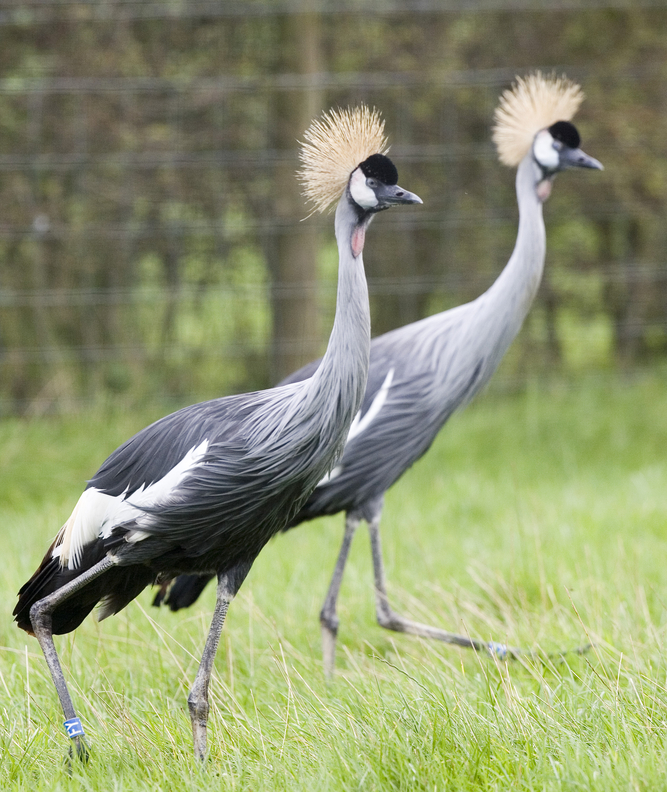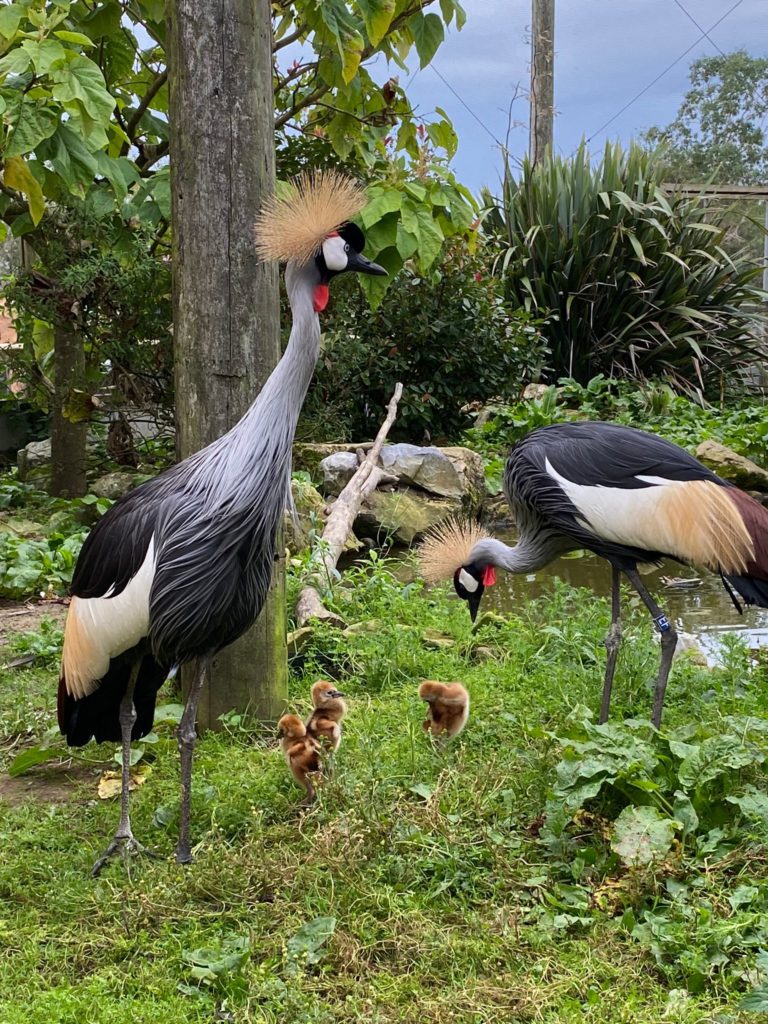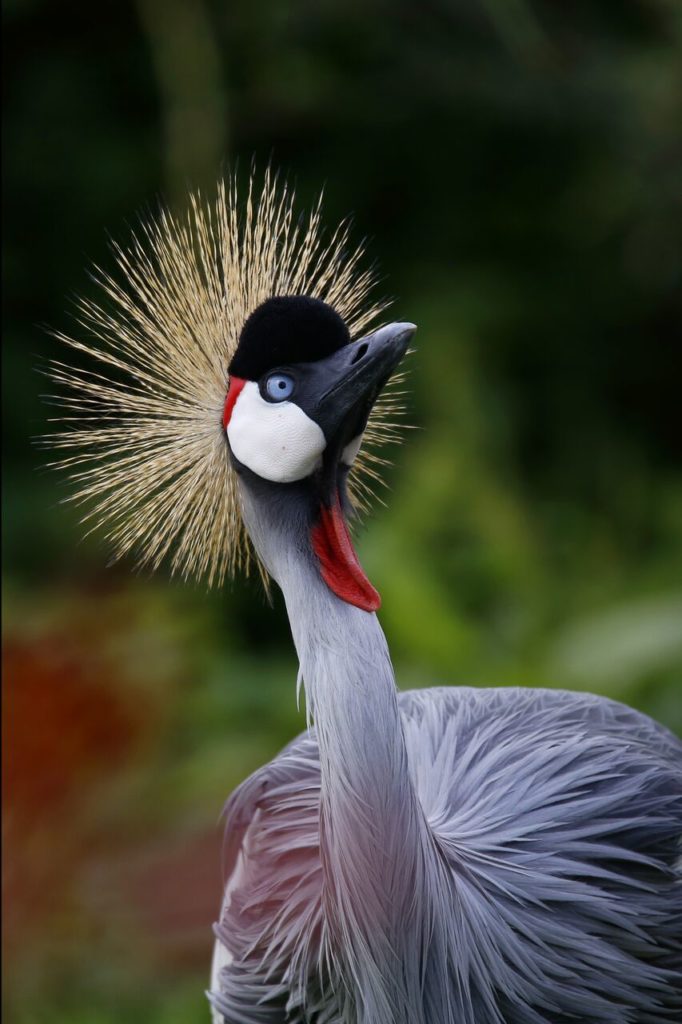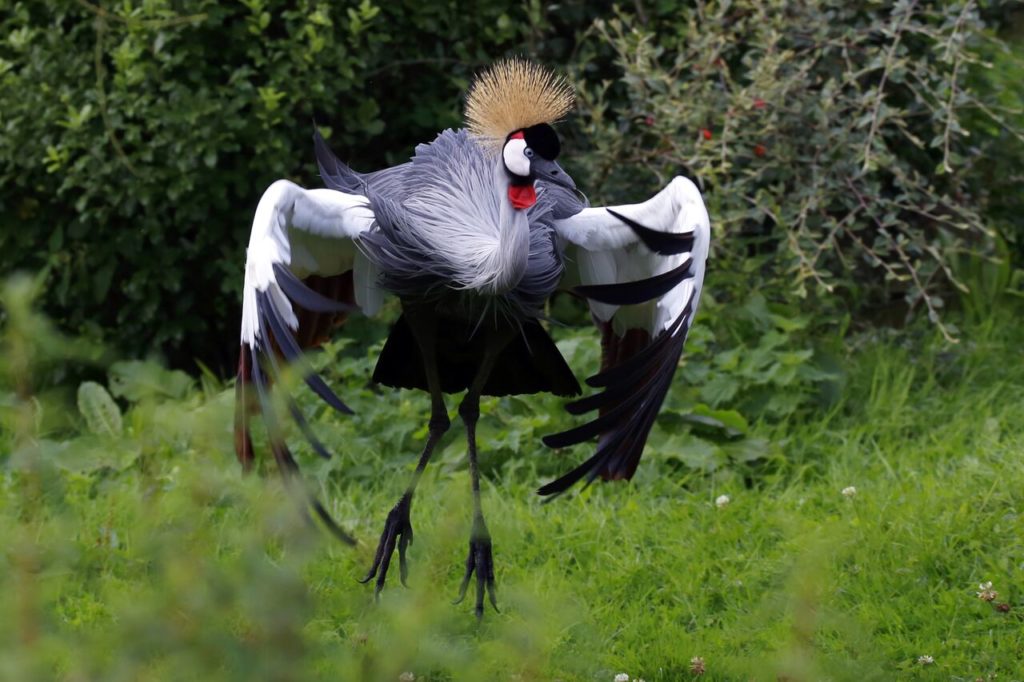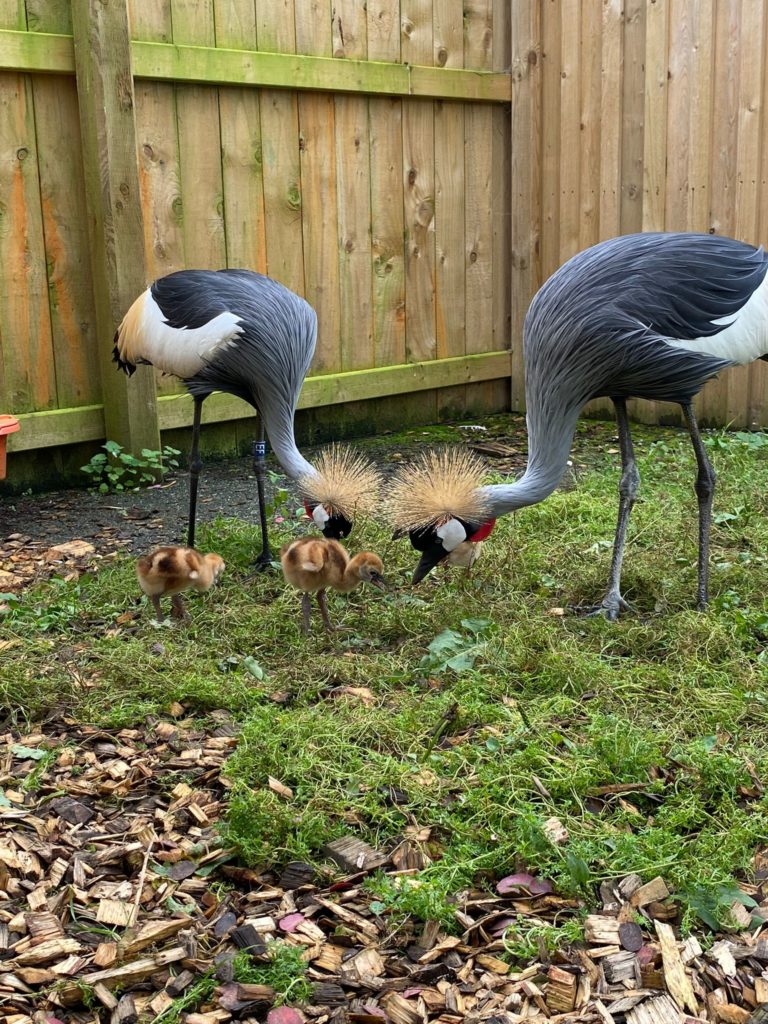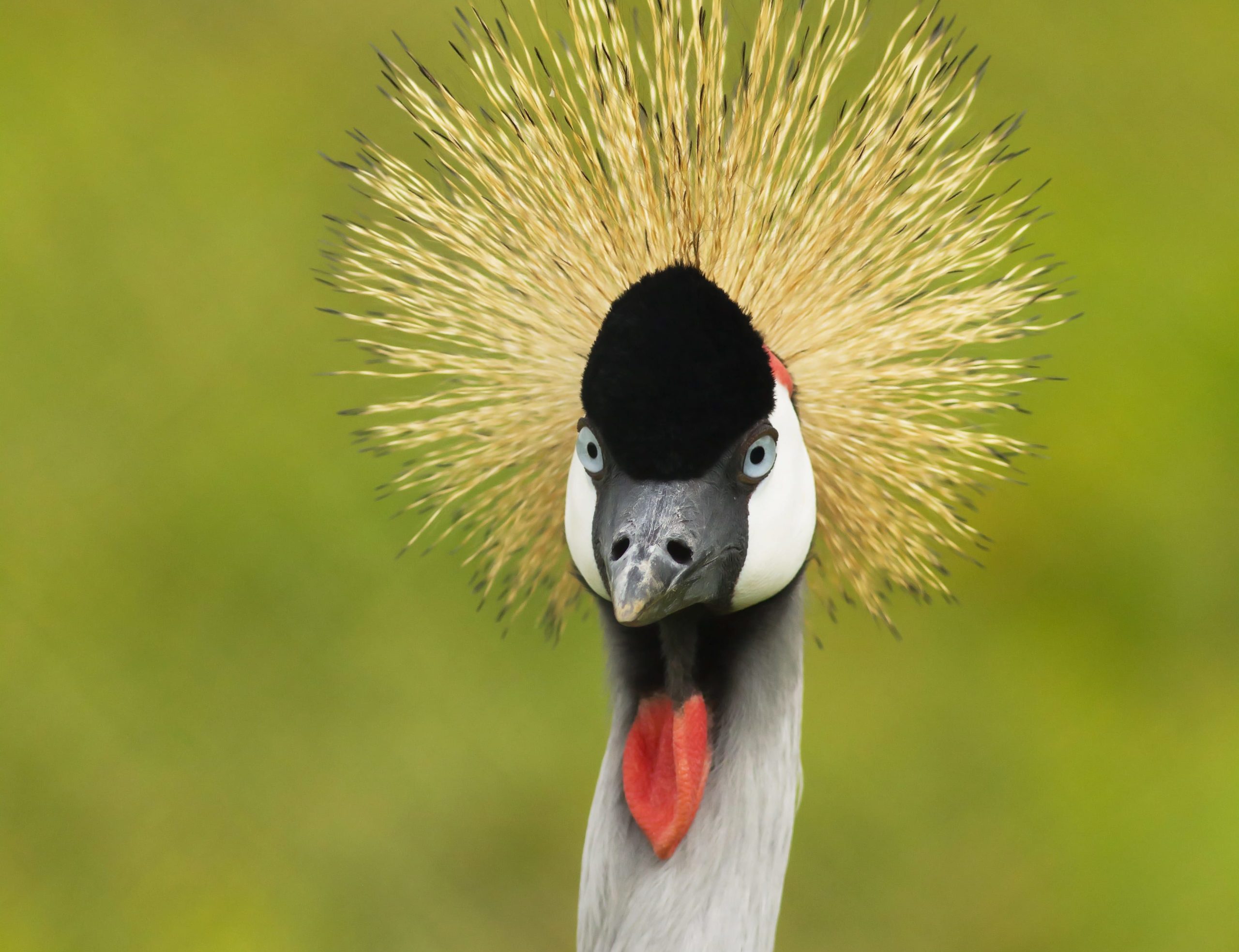

Found in the grassland and wetland areas of the eastern and southern regions of Africa and standing at over a metre tall, there’s no mistaking these giants of the bird world.
They really do. It’s a breeding display and they like to ‘throw shapes’ in order to attract a mate. Can you dance like a crane? Well, if you can move your feet, bow and jump then you’ve got the basic crowned crane dance steps!
Grey crowned cranes like to share their parental duties. Both the male and the female help to build the nest. They both help out with incubating the egg and also caring for the young.
The grey crowned crane is listed as endangered on the IUCN Red List. It’s protected by law in South Africa, Zimbabwe, Uganda and Kenya. There are also many conservation efforts in place to ensure the survival of the species. Kenya, Zimbabwe and Uganda are undertaking community based wetland conservation and African crane and wetland training in Botswana.
Latin name
Balearica regulorum
Class
Aves
Order
Gruiformes
Family
Gruidae
Conservation status
Endangered
Impress your friends with everything you know about the Grey crowned crane!
They’re omnivores, so that means they can eat both plants and animals. Their diet usually consists of plants, grain, insects, snakes and small fish.
Usually between two and five.
Big. They have a wingspan of up to two metres.
As much as they can…they actually spend their entire day foraging for food.
